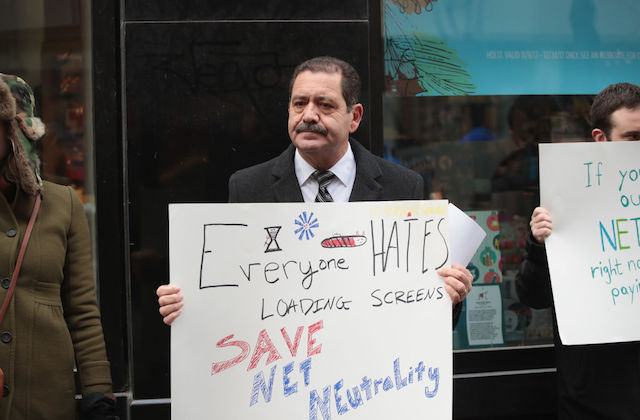22 Attorneys General Sue FCC For 'Arbitrary' and 'Capricious' #NetNeutrality Rollback

The top legal officials of 21 states and the District of Columbia joined the nationwide fight to protect net neutrality by suing the Federal Communications Commission (FCC).
The attorneys general filed the lawsuit with the U.S. Court of Appeals for the District of Columbia Circuit yesterday (January 16). The filing denounces the Restoring Internet Freedom Order, which the FCC passed in a 3-2 vote last month, as "arbitrary, capricious and an abuse of discretion." The complaint also accuses the FCC of violating the Communications Act of 1934, which regulates interstate communications. The FCC's order repealed the commission's 2015 decision to reclassify the internet under Title II of the act, which made online access a public utility and authorized the FCC to keep it open and equitable.
"State petitioners respectfully request that this court hold unlawful, vacate, enjoin and set aside the order, and that it provide such additional relief as may be appropriate," reads the lawsuit.
The states represented in the filing span the country. The majority of residents in several petitioning states, including California, Hawaii and New Mexico, are people of color who disproportionately suffer from lack of access to high-speed broadband.
"Today, we are taking aggressive legal action to stop the illegal rollback of net neutrality protections because New Mexico already struggles to ensure equal internet access for all New Mexicans, and the FCC's blatant, un-American attack on a free and open internet will only further harm vulnerable consumers, families and businesses," New Mexico attorney general Hector Balderas wrote in a statement yesterday.
The filing is the latest part of a multi-level challenge to the FCC ruling. Lawmakers in California, Washington and other states whose attorneys general co-signed the lawsuit have introduced legislation to prevent internet service providers from influencing connection speed and content.
Federal legislators took their own action earlier this month, with Democratic Senators gathering support for legislation that—if it gets one more vote in the Senate and wins approval in the House of Representatives and a signature from President Donald Trump—would override the net neutrality repeal.
Digital justice advocacy groups Free Press and Public Knowledge filed similar challenges to the FCC order in the same D.C. appeals court yesterday.
